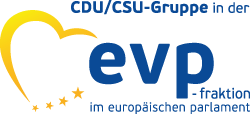Independent, scientific review particularly important in this case / Questionable whether Sputnik V can help us quickly / 6 vaccine manufacturers have already moved on
The European Medicines Agency (EMA) today launched a so-called rolling review procedure for the Russian vaccine Sputnik V. This is the first step in the EU's vaccine authorisation process. The Russian Gamaleja Institute of Epidemiology and Microbiology now has the opportunity to gradually submit its scientific findings on the efficacy, safety and quality of the vaccine. The scientific experts will review these and if this scientific analysis is positive, a marketing authorisation application can be officially submitted. Sputnik is the seventh vaccine now being examined in this procedure. In addition to the three authorised vaccines from Biontech/Pfizer, Moderna and AstraZeneca and the vaccine from Johnson&Johnson whose authorisation is expected on 11 March, the American company Novavax and the German-based company Curevac long ago begun the rolling review.
“Sputnik is therefore only number seven in this question,” noted MEP and health policy spokesperson of the largest group in the European Parliament (EPP-Christian Democrats), Dr. med. Peter Liese. "I welcome the fact that independent, scientific experts are now analysing and evaluating the Russian data. As with the other vaccine candidates, the data will be assessed on a purely scientific basis. I do not rule out the possibility that the vaccine will be assessed as effective and can be used in Europe. Anything that helps us fight the pandemic is of course welcome. However, I remain sceptical. The clinical data presented by the Gamaleja Institute on Sputnik V still have a big question mark for me, and the publication in the scientific journal Lancet has raised critical questions.
Therefore, a close scientific and critical review of the data by the EMA is particularly important in this case. The Russian government had already announced in August last year that it had approved Sputnik. However, this was not an approval, but a fake. Only less than 100 test persons were tested at that time. In the vaccine studies of the serious vaccine manufacturers, there were more than 40,000 in each case," said the doctor and MEP. Liese was also rather sceptical about whether the vaccine could play an important role in fighting the pandemic in Europe.
"With the start of the Rolling Review process today, only the first step has been taken. I remain optimistic that very soon after the summer we will have more vaccine in the EU than we actually need and we can even start to consider giving it to third countries. The head of the Russian state fund Kirill A. Dimitriyev has announced that larger deliveries to the EU will only be possible when the mass vaccinations in Russia are finished. Since Russia is behind the EU in the vaccination rate (EU: 2.17%, Russia: 0.75%, JHU ), this will only be possible in the second half of the year and then we will definitely no longer need Sputnik, because at that time there is a realistic chance that, in addition to the three vaccines already approved and Johnson&Johnson, the companies Curevac and Novavx will also already be able to deliver. From my point of view, today's news should therefore be an incentive for Johnson&Johnson in particular to start supplying the EU quickly. Otherwise, it would be easy for al for all those who advocate state production and reject cooperation with private pharmaceutical companies. All private companies that cooperate with the European Union should feel challenged to deliver as much vaccine as possible to the EU as quickly as possible," Liese concluded.


